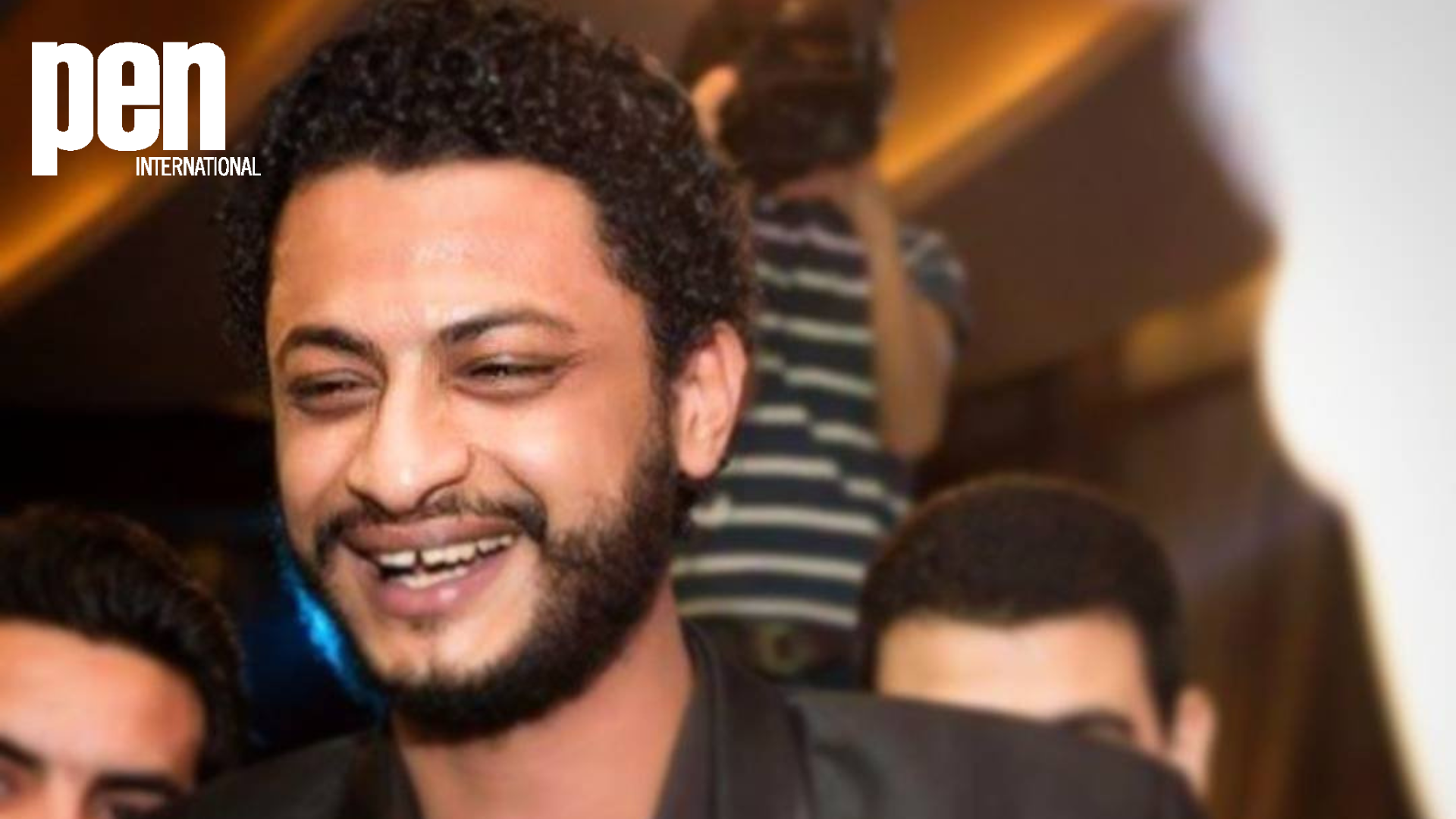Egypt: Poet Galal El-Behairy faces fresh charges after four years in pre-trial detention
We are deeply shocked by the new charges brought against the acclaimed young poet Galal El-Behairy. His only so-called crime has been to write poems. He should not spend a single minute behind bars—yet he has been unjustly imprisoned since 2018, a grave injustice. Incarcerating poets for their words is not a show of strength, but of fear. It signals a society in distress—one where the imagination of a writer is seen not as a source of pride, but as a threat to power. And when that happens, it is not the poet who stands condemned, but the world that silences him.”, said Romana Cacchioli, executive director of PEN International.
21 August 2025: PEN International strongly condemns the Egyptian authorities’ decision to bring new charges against award-winning poet Galal El-Behairy, which PEN International believe to be fabricated and intended to further extend his unjust incarceration. Bringing new charges against El-Behairy after he has already spent nearly four years in pre-trial detention sends a clear message that Egyptian authorities have no intention of easing their ruthless crackdown on freedom of expression.
The organisation continues to hold Egyptian authorities fully responsible for El-Behairy’s physical and mental health and calls for all charges against him to be immediately dropped. Pending his prompt and unconditional release, the authorities must ensure he has full access to adequate medical care, reading and writing materials pending his release.
PEN International understands that, following the issuance of new charges earlier this week, the Supreme State Prosecution summoned Egyptian poet and lyricist Galal El-Behairy from prison for interrogation. These charges – based solely on a report by National Security officers that dates to 2023 – include “disseminating fake news” and “joining and aiding a terrorist organisation. Approving the charges, the prosecutor ordered pre-trial detention concerning the new charges; in violation of international standards, as his ongoing arbitrary imprisonment already extends far beyond the maximum legal limit for pre-trial detention in relation to similar charges brought against him in 2021.
Arrested in March 2018, Galal El-Behairy remains in detention without trial, despite having already served a three-year sentence and an additional two years in pre-trial detention. El-Behairy’s physical and mental health have severely declined due to his prolonged arbitrary detention, which includes his incredibly harsh prison conditions as well as deliberate and malicious medical negligence. He went on a hunger strike between 16 June and 14 August 2025, to protest prison authorities’ inhuman treatment, including denying him access to reading and writing materials and vital medical care. El-Behairy has previously gone through several hunger strikes throughout his imprisonment in protest over his arbitrary detention, which has significantly, along with torture and deplorable detention conditions, contributed to his declining health.
In a moving message to PEN International, El-Behairy describes the reasons behind his recent hunger strike as “humble” and “more achievable” goals. He explains that he demands access to pens and paper, not to have to beg the prison officers to be able to read a book, treatment for a tumour in his mouth, and for his family not to be ill-treated during prison visits.
PEN International has continually raised concerns that El-Behairy’s repeated requests for medical attention for a tumour inside his jaw since last year (and causing severe difficulty in swallowing) and requiring urgent medical intervention have been systematically ignored. In addition, prison authorities have systematically subjected El-Behairy to discriminatory treatment by blocking his access to books since March 2025, while refusing to allow him access to writing materials for almost two years. On 14 August 2025, Badr I Prison officers refused to allow El-Behairy access to writing materials his family brought during the monthly visit and returned the papers and pens to them. Similarly, officers refused to deliver three novels that his family brought during an earlier visit and returned the books to them in March. Furthermore, on 7 July 2025, officers refused to allow El-Behairy access to a warm water bag that his family had brought to alleviate his back pain.
Background
The human rights crisis in Egypt has significantly worsened since President Al-Sisi seized power in 2014, as authorities systematically punished any public or perceived dissent and severely repressed the rights to peaceful assembly, association, and freedom of expression. Scores of journalists, human rights defenders, activists, and writers have been arbitrarily detained for prolonged periods without trial and face trumped-up charges solely concerning their work or critical views. The authorities have systematically targeted them through repressive tactics such as judicial harassment, smear campaigns, threats, physical assaults, unfair trials, and travel bans. PEN International has documented several cases of writers imprisoned for their expression, including British-Egyptian writer Alaa Abd El-Fattah, cartoonist and translator Ashraf Omar, and Egyptian poet Ahmed Douma.
In 2025, Egyptian President Abdel Fattah Al-Sisi issued two presidential pardons, the first coinciding with Sinai Liberation Day and Eid al-Fitr in March, and the second in May ahead of Eid al-Adha. Both pardons have notably excluded prisoners of conscience, signalling a disturbing reluctance by the Egyptian authorities to ease their onslaught on freedom of expression.
Note to editors:
For more information, please contact Mina Thabet, Head of the MENA Region, email: [email protected]
For media queries, please contact Sabrina Tucci, Communications and Campaigns Manager at PEN International: [email protected]

